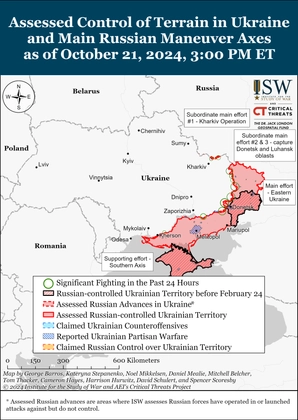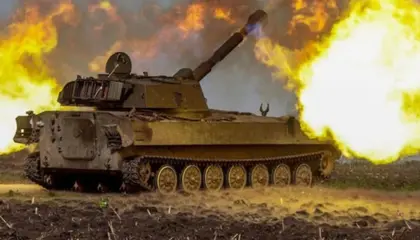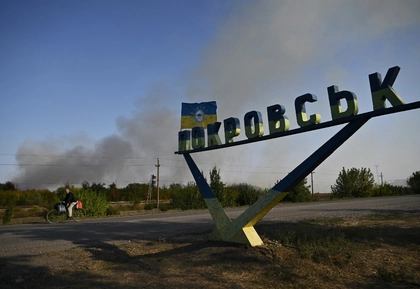Last week brought muted celebrations and grave concerns to the door of Ukrainians. We celebrated the 31st anniversary of our country’s independence, heard about the temporary but extremely worrying disconnection of the Zaporizhzhia Nuclear Power Plant (ZNPP) from the national grid, and a learnt about a terrorist attack in Moscow, Which Russian propagandists tried to pin on Ukraine.
Putin’s Nuclear Blackmail
JOIN US ON TELEGRAM
Follow our coverage of the war on the @Kyivpost_official.
The 1986 Chornobyl nuclear disaster left a painful mark on Ukraine’s public consciousness. In the years that immediately followed, there was even talk of closing all nuclear power plants until safety fears could be allayed.
Upon Ukraine becoming an independent country in 1991, nuclear energy became a powerful part of our country’s energy system, generating up to 40% per cent of electricity during critical periods. Additional safety measures (plus extra contingency mechanisms) were put in place across all our nuclear plants.
But trouble came from where we least expected it. In late February, the Russian invaders tried to use the decommissioned Chornobyl plant as a “nuclear scarecrow”. It failed, and our troops forced the occupiers to retreat outside the station’s territory and back north to Belarus.
Currently, the Kremlin is using the ZNPP, which was captured by Russian occupying forces on March 4, for nuclear blackmail. The occupiers placed troops and military equipment on the territory of the station, planted mines and began periodically shelling Nikopol and parts of the Armed Forces of Ukraine from its territory. These actions provoked our troops to retaliate, albeit with full appreciation of the dangers of doing so.

ISW Russian Offensive Campaign Assessment, October, 22, 2024
There are three main goals of these provocations, which I’ll address in turn:
- Putin is blackmailing Ukraine and Western Europe with the threat of a nuclear disaster at the ZNPP site. However, he forgets, or perhaps does not care at all, that the spread of radioactive particles will depend to a large extent on the wind direction. According to the latest computer models, the wind is more likely to be blowing toward Russia;
- Russia plans to blame any such disaster on Ukraine. The Kremlin is already trying to claim that its forces are defending the site they are shelling. And one only has to remember that there were no problems at the ZNPP until the Russians invaded our country and seized the station;
- Moscow is pursuing a utilitarian goal of trying to disconnect the ZNPP from the Ukrainian energy system and reconnect it to the Russian system. This will make the lives of Ukrainians as difficult as possible over the winter period. In addition to the projected gas shortage, there will be a shortage of electricity, which will have to be purchased from elsewhere.
As trite as it sounds, the situation at the ZNPP is a cause for great concern the world over. On Aug. 24, during a meeting of the United Nations Security Council, President Volodymyr Zelensky called on the International Atomic Energy Agency (IAEA) to take full control of the station, demand the withdrawal of Russia’s troops, and declare the territory a demilitarized zone. Most members of the Council were in favor, but Russia was clearly against.
The situation worsened on Aug. 25, when the ZNPP was completely disconnected from Ukraine’s power grid for the first time in its history. The pumps for cooling the active zone of the reactor operated from a backup generator, which had no more than three days’ worth of fuel. If it had stopped working altogether, it ran the risk of a nuclear explosion akin to Fukushima. On Aug. 26, fortunately, connection to Ukraine’s grid was restored.
Following a period of tense negotiations, an agreement was reached on the visit of the IAEA delegation, which aims to inspect the ZNPP by Sep. 5. Reports are also emerging in Western media that the occupiers are intimidating and torturing the plant’s employees to prevent them from informing the IAEA mission about the atrocities the Russians have committed.
The situation at the station is critical: the clock counting down the time to a nuclear disaster shows five minutes to midnight. The situation requires the immediate adoption of radical measures – the withdrawal of Russian occupying forces from the territory of the station, its transformation into a demilitarized zone or the deployment of UN peacekeeping troops.
A longer-term and perhaps more idealistic goal would be the complete denuclearization of Russia as a fascist, aggressive and irresponsible state – with nuclear disarmament under the control of the UN.
Terror as a tool of Russian state policy
On Aug. 24, Ukrainians not only celebrated the 31st anniversary of independence, but were prepared for the onslaught of powerful Russian missile strikes. Indeed, a warning was given by the Main Directorate of Intelligence.
Ukraine’s Independence Day passed relatively quietly compared to what had been predicted, although the air alert sounded almost without interruption in Kyiv.
However, Russia launched a strike on the Chapline railway station in Dnipro region. They proclaimed the destruction of 200 Ukrainian servicemen and an echelon containing military equipment. In fact, a rocket hit a passenger train, killing 25 innocent civilians, including two children. A correspondent from the well-known Western information agency AP, who visited the scene of the tragedy, confirmed that he did not see any signs of military casualties.
The deaths of so many civilians and children was a tragedy, but the reality could have been even worse.
So, what changed Putin’s plans, besides the Ukrainian air defense system working well? There are two possible reasons:
- The Russian invaders inflicted all they were capable of. They can no longer attack as massively as they did on the night of Feb. 24. The Defense Intelligence of Ukraine (GUR) has partially confirmed this opinion, announcing that Russia has already used 55 percent of its missile reserves in an aggressive war against Ukraine;
- Putin is wary of any further escalation of hostilities and ordered his military to hold If true, this rationale would be surprising since it does not correspond with the previous pattern of actions of the Russian dictator.
From here, we turn our attention to another event intended to sow hatred among ordinary Russians towards their Ukrainian neighbors.
Murder of Darya Dugina
On Aug. 20, Darya Dugina’s car was blown up in Moscow. Many experts believe that the murder of the daughter of the famous ideologue of Eurasianism and Russian fascism, Alexander Dugin, would be a reason to justify a mass rocket attack on Ukraine, and to press ahead with the trial of the captured “Azov” soldiers. It is also widely believed that this terrorist attack was carried out by Russian killers.
The FSB tried to drag the Azov regiment into the murder, labelling it a “terrorist group”. However, this plan clearly failed. Furthermore, Ukrainian authorities categorically denied their involvement in the attack. Indeed, the majority of Ukrainians have only now learned about the existence and works of the devilish ideologue, Dugin.
The situation proved similar in Russia. According to the Russian Public Opinion Fund, the death of Dugina did not make it to the priorities of events in the past week that concern citizens of the Russian Federation. Moreover, the Kremlin had to back-track and the event is no longer talked about on Russian propaganda channels.
Last week’s events once again confirm the Kremlin’s predilection for terrorism. By definition, Russia is far worse than a state sponsor of terrorism – it is a terrorist country that uses terror as an instrument of state policy.
Ihor Zhdanov is a co-founder of the Open Policy Foundation, a National Government Organization (NGO) in Ukraine.
The views expressed are the author’s and not necessarily those of the Kyiv Post.
You can also highlight the text and press Ctrl + Enter






